- Log in
-
- Sydney Overseas Office
- London Overseas Office
- Paris Overseas Office
- Toronto Overseas Office
- Los Angeles Overseas Office
- New York Overseas Office
- Ulaanbaatar Overseas Office
- Istanbul Overseas Office
- Dubai Overseas Office
- New Delhi Overseas Office
- Manila Overseas Office
- Jakarta Overseas Office
- Hanoi Overseas Office
- Kuala Lumpur Overseas Office
- Singapore Overseas Office
- Bangkok Overseas Office
- Map
- Sydney Overseas Office
- London Overseas Office
- Paris Overseas Office
- Toronto Overseas Office
- Los Angeles Overseas Office
- New York Overseas Office
- Ulaanbaatar Overseas Office
- Istanbul Overseas Office
- Dubai Overseas Office
- New Delhi Overseas Office
- Manila Overseas Office
- Jakarta Overseas Office
- Hanoi Overseas Office
- Kuala Lumpur Overseas Office
- Singapore Overseas Office
- Bangkok Overseas Office
Traditional Markets
-
-
-
【Gwangju】 Yangdong Traditional Market
-
378
0
0
-
-
Gwangju
-
-
A Gourmet Market Featuring Tongmaek (fried chicken & beer) & Gunmaek (dried fish + beer) Festivals
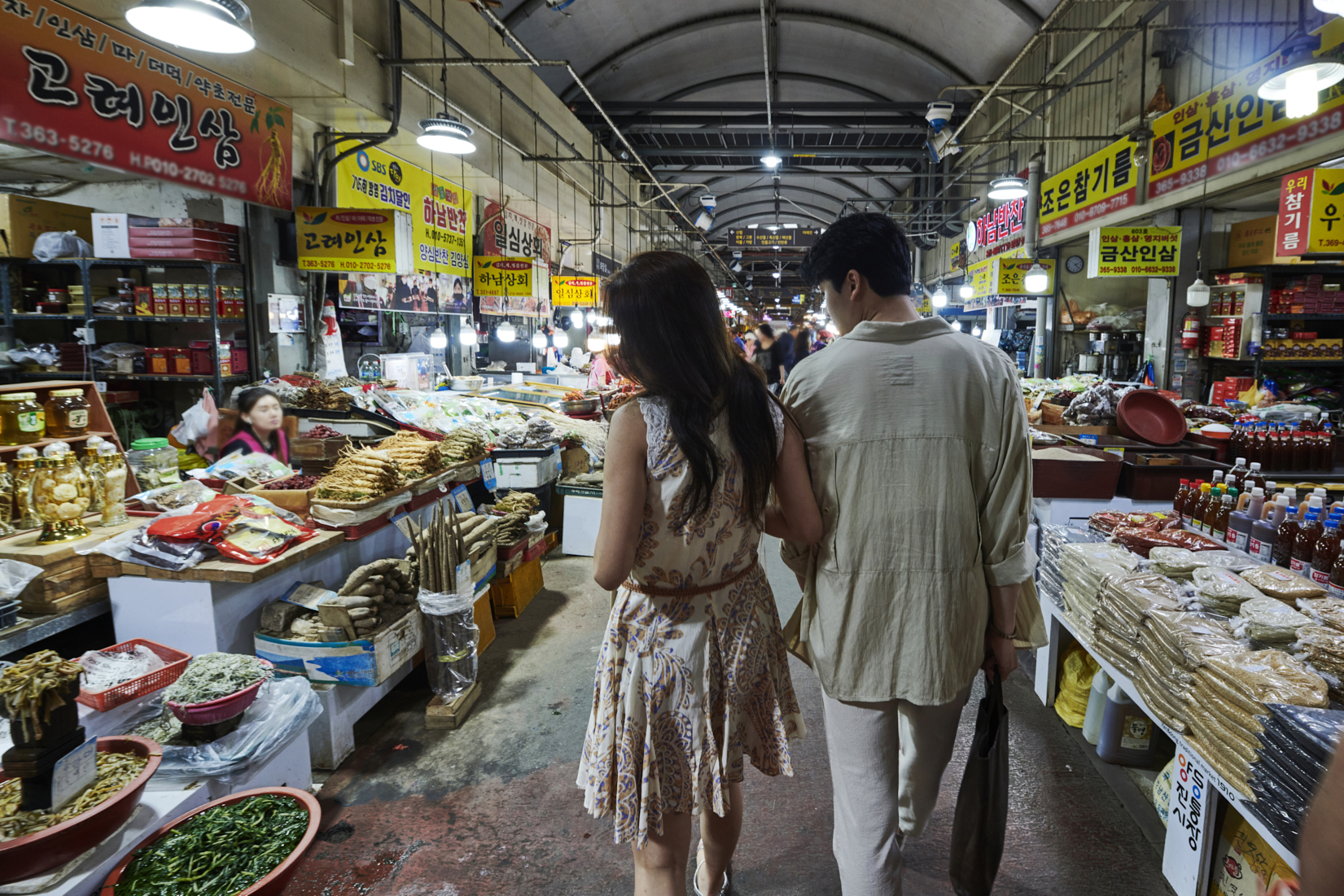
[Gwangju]
The large and small markets, which were open on the sandy beach under Gwangju Bridge on days ending in 2 or 7, have grown to be the largest market in Jeollanam-do. Nicknamed "Gwangju's Kitchen," Yangdong Traditional Market is a place where various goods are sold and it also offers a variety of foods. Going through its long history of more than 100 years, Yangdong Traditional Market has witnessed dynamic and historic events in modern and contemporary Korea. During the colonial period under Japanese rule, it became a pivotal point for the independence movement, and during the May 18 pro-democracy movement in 1980, rice balls and daily necessities were handed out to students and citizens from here. It has now become a place where the May movement is celebrated.
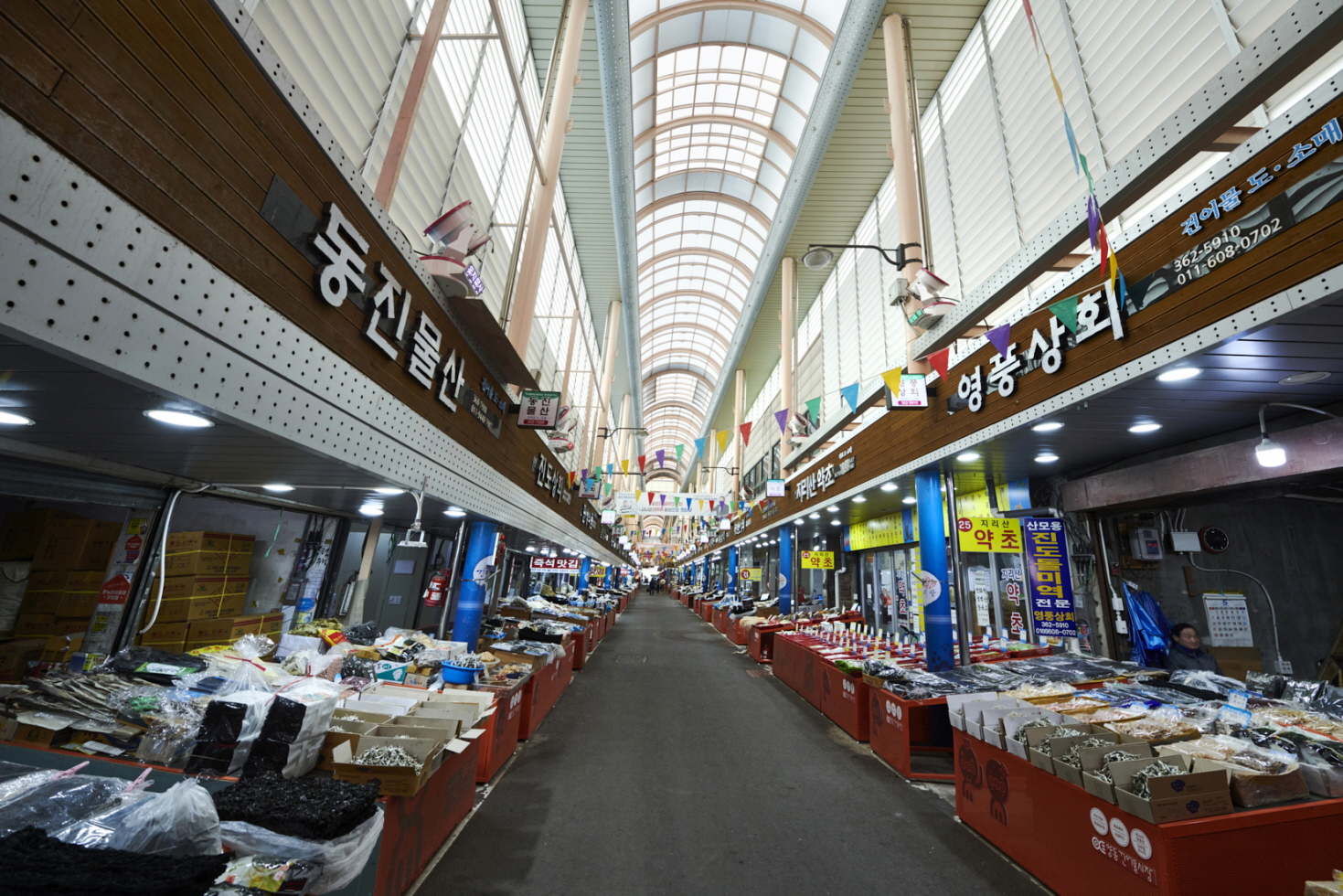
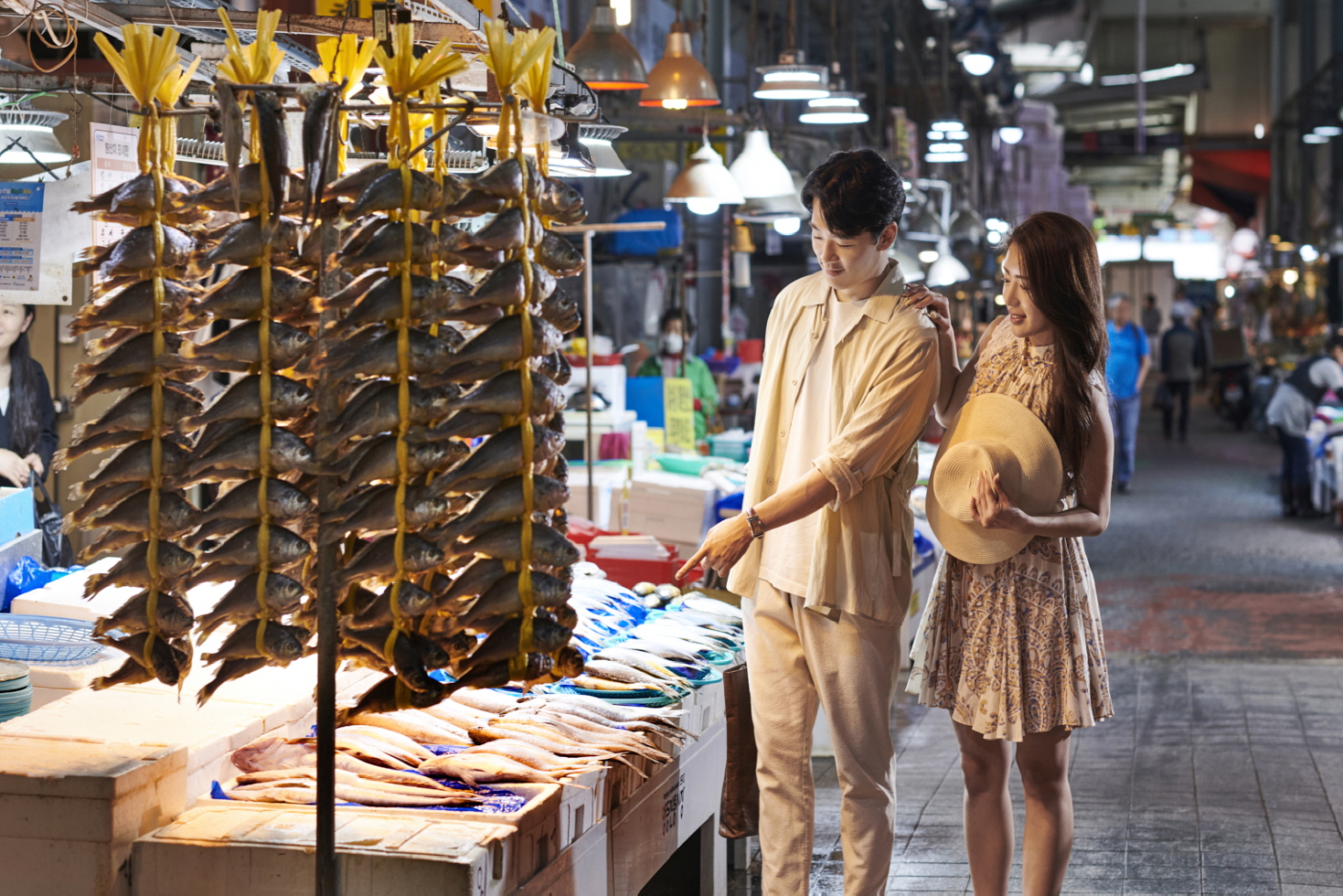
[Yangdong Traditional Market]
Yangdong Traditional Market's love for the community continues till today. It runs a program offering lunch for the elderly almost free of charge. Cafe Mores within River Market 276 trains people with disabilities who want to be baristas, and cooking, craft, and zero waste programs are also offered. One event after another is taking place for local residents and tourists. In spring, the Yangdong Tongmaek (chicken + beer) Festival is held and you can buy a glass of draft beer for 1,000 won (less than 1 dollar). In autumn, you can experience the perfect pairing of dried fish snack and beer at the Yangdong Gunmaek (dried fish + beer) Festival.
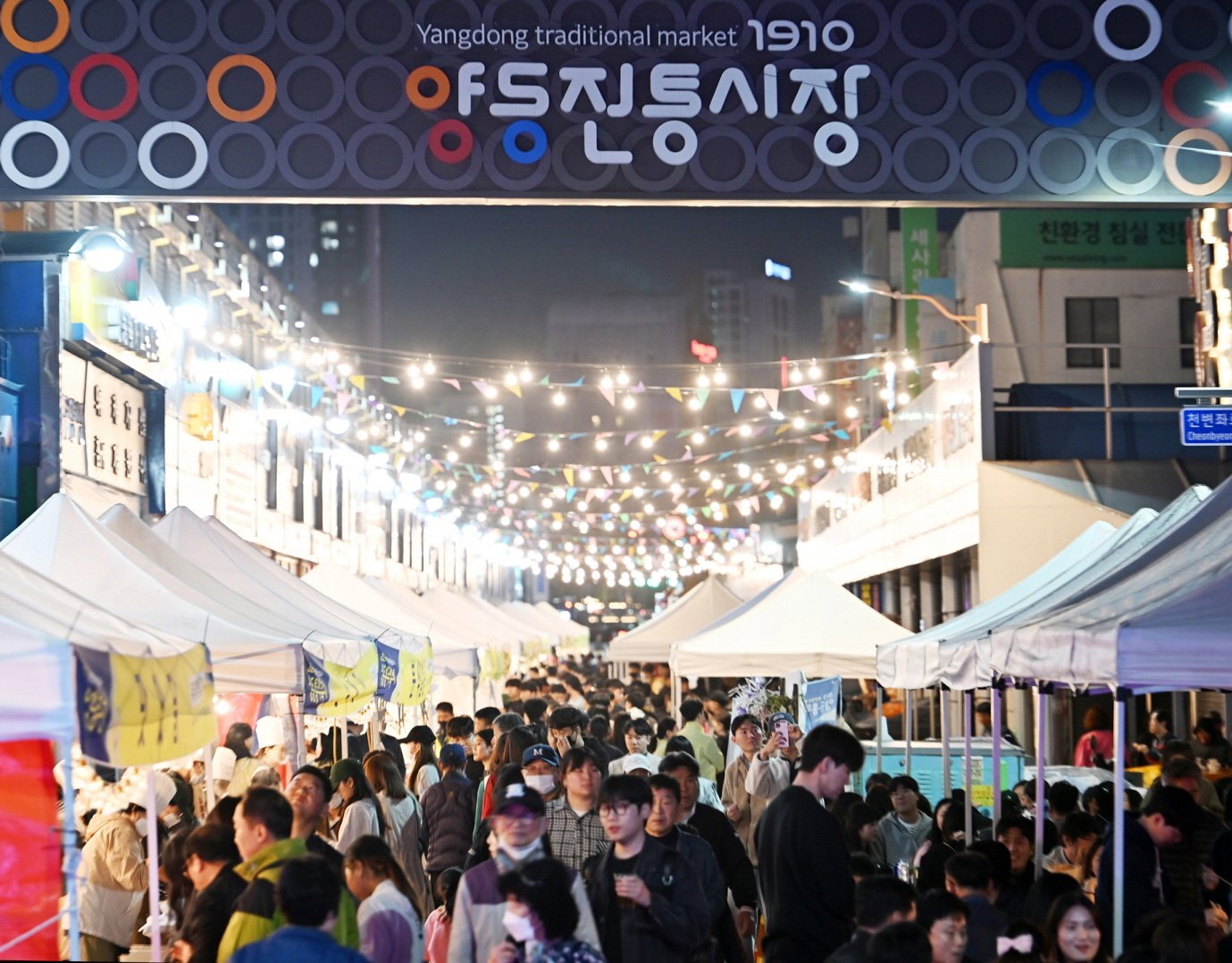
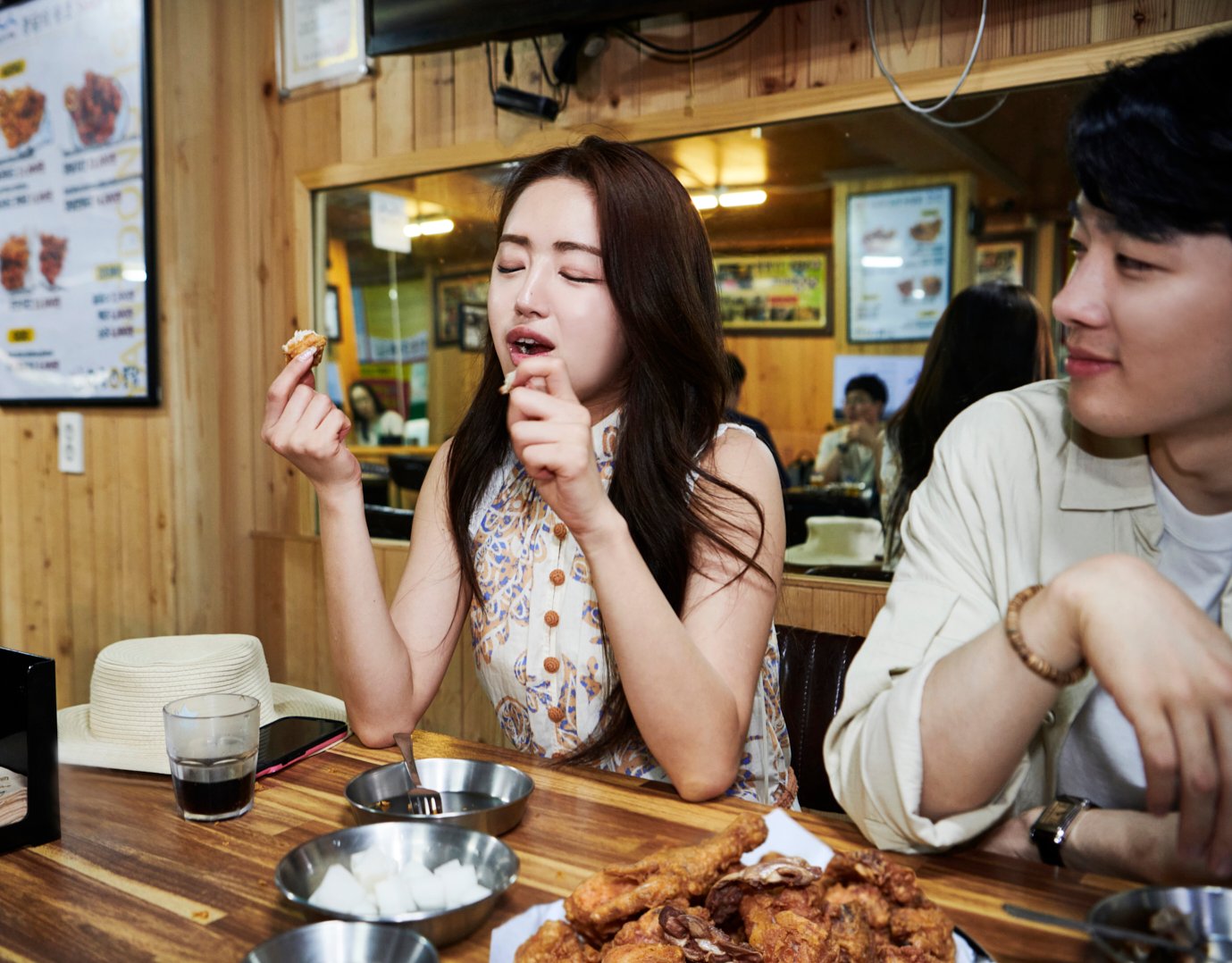
© Seo-gu, Gwangju City
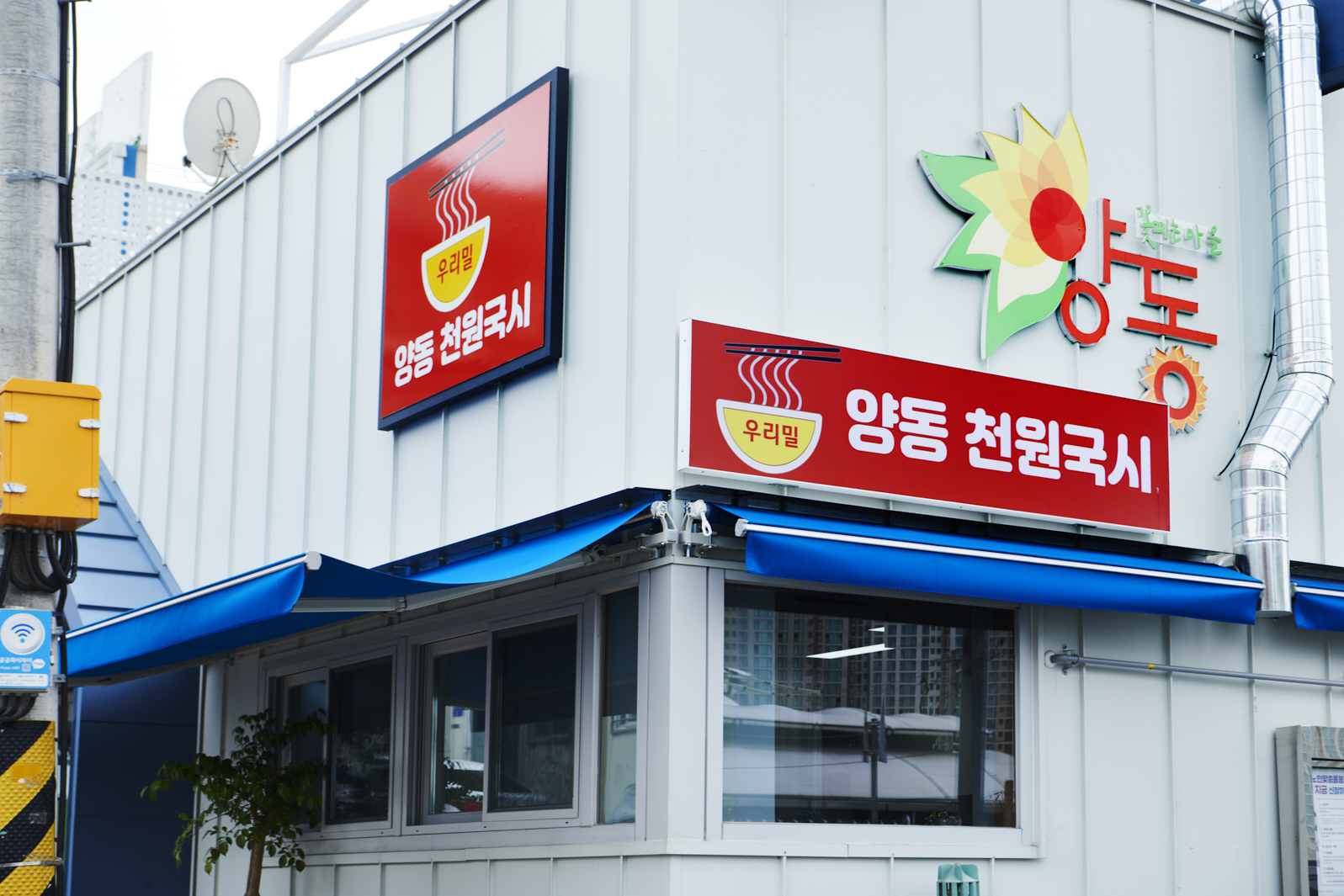
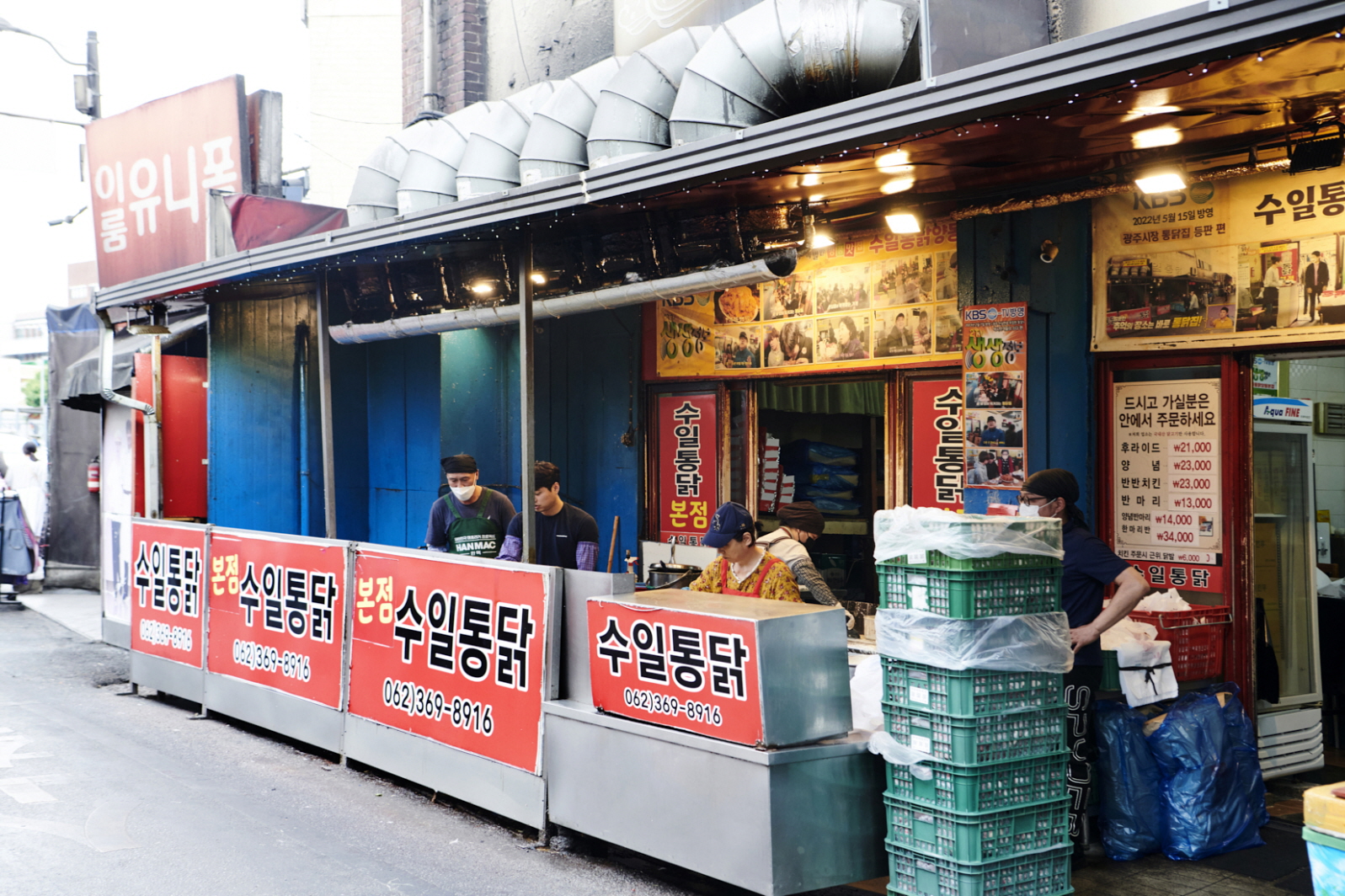
If you are a gourmet who knows Korean cuisine well enough to appreciate the fermented skate, you must try some at Yangdong Traditional Market. 90% of the skate distributed across Korea originates from this market. Never tried it before? Then, start with the sweet and sour variation first.
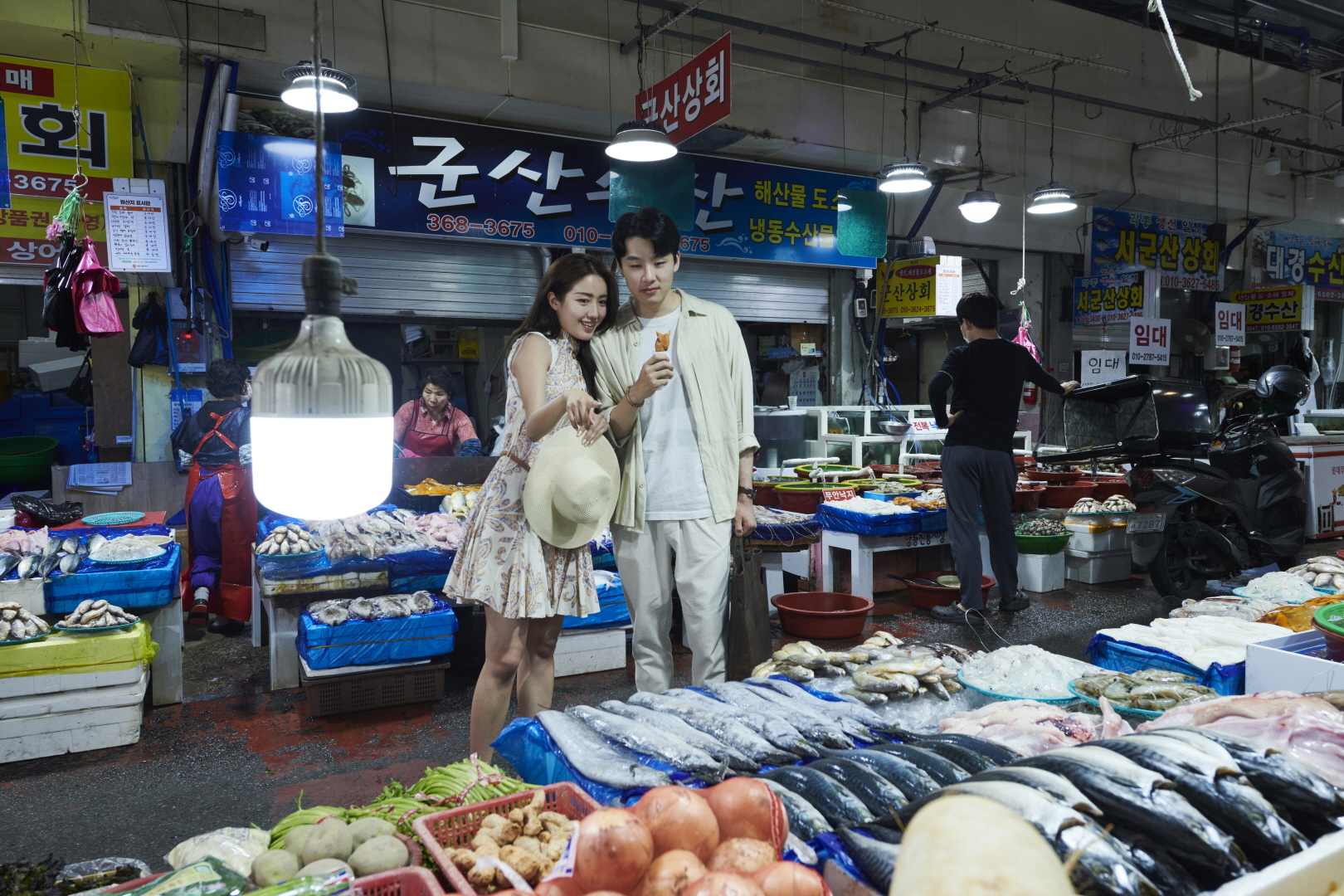
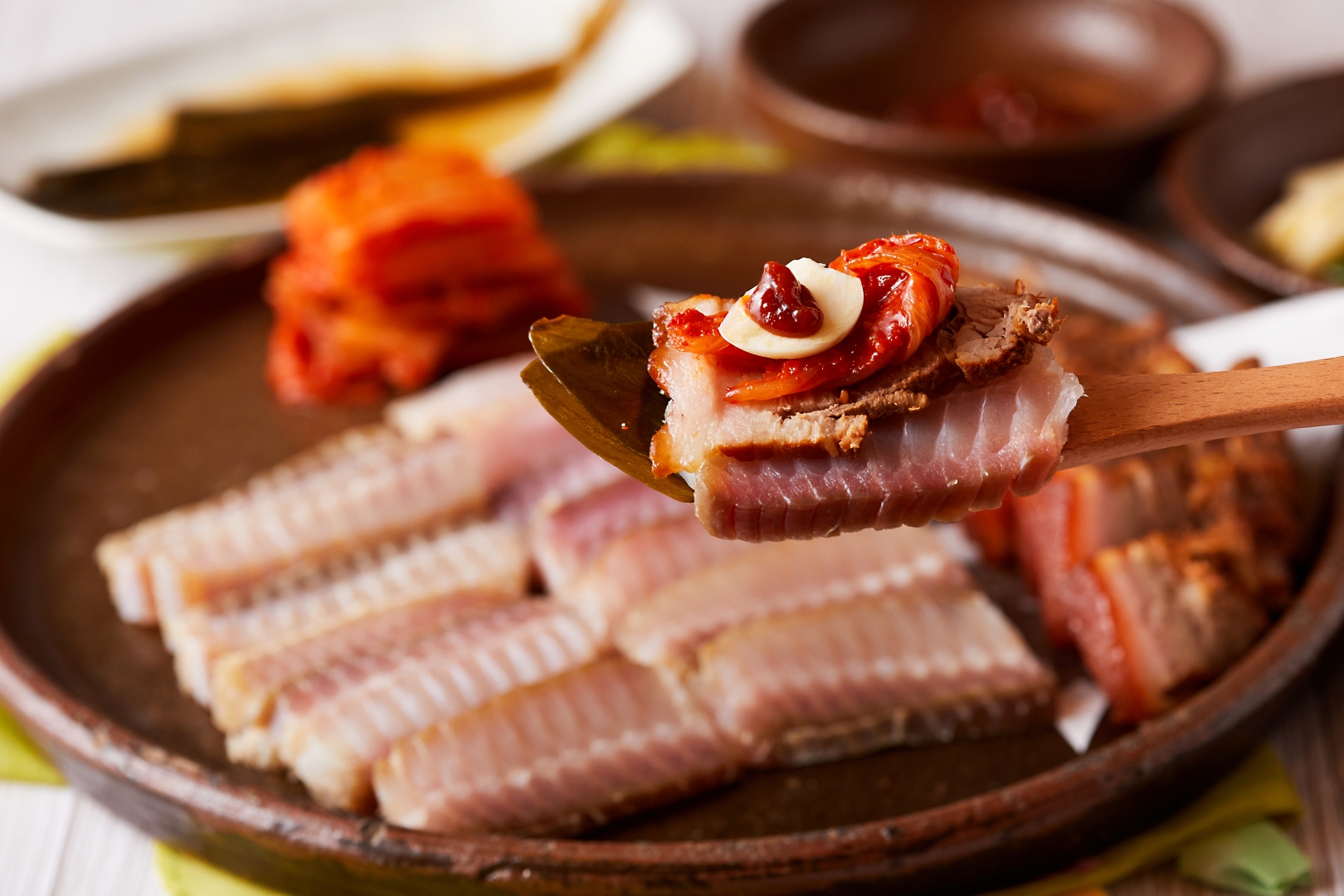
ⓒKorea Tourism Contents Lab
Address: 238, Cheonbyeonjwa-ro, Seo-gu, Gwangju
Operating hours: 03:00-21:00 (Shops selling industrial products open from 09:00)
Closed: 1st and 3rd Sunday April-September
* It is located near Exit 1 or 2 of Yangdong Market Station (Gwangju Metro)【TOP 3 Eateries at Yangdong Traditional Market】
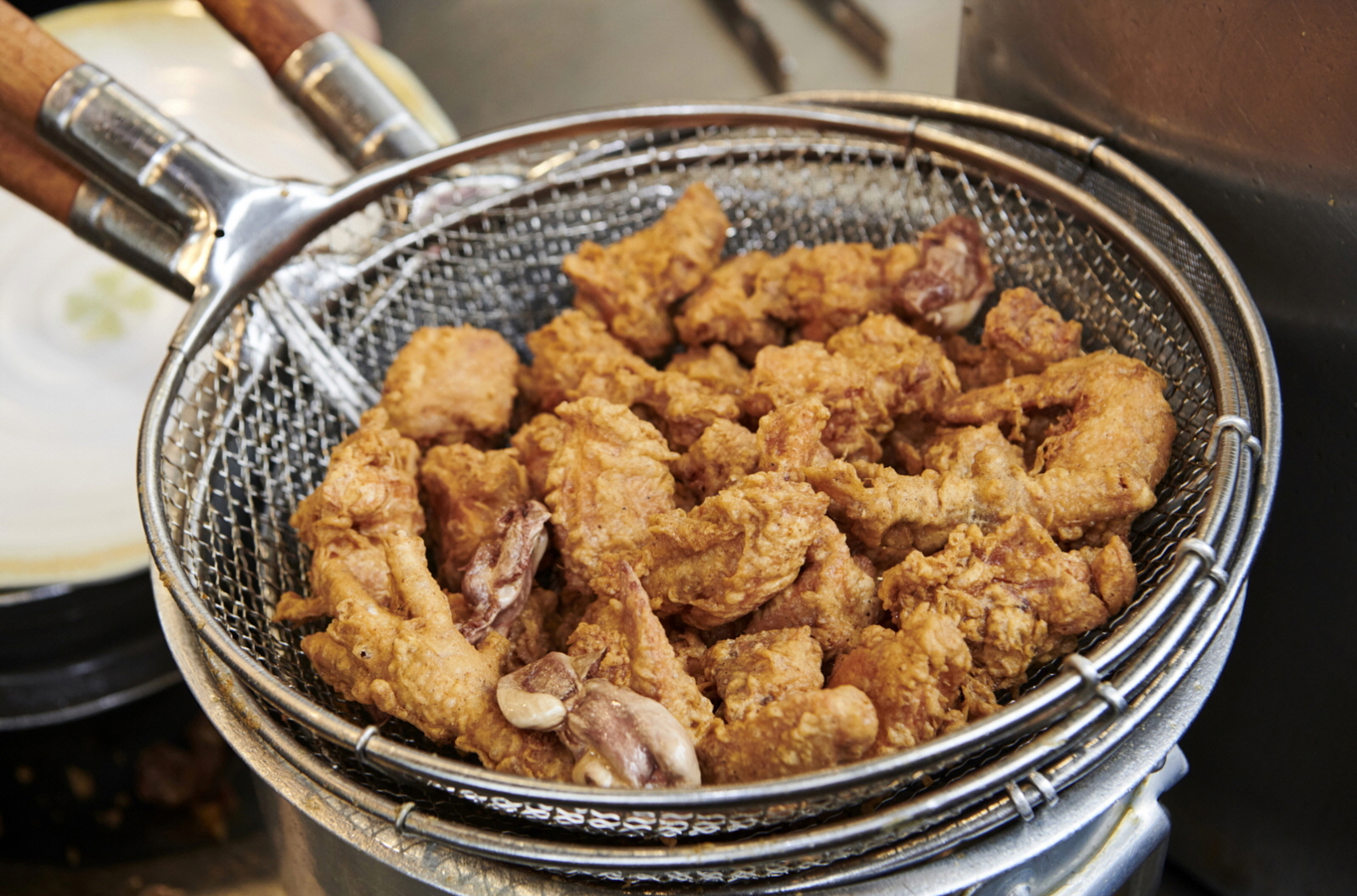
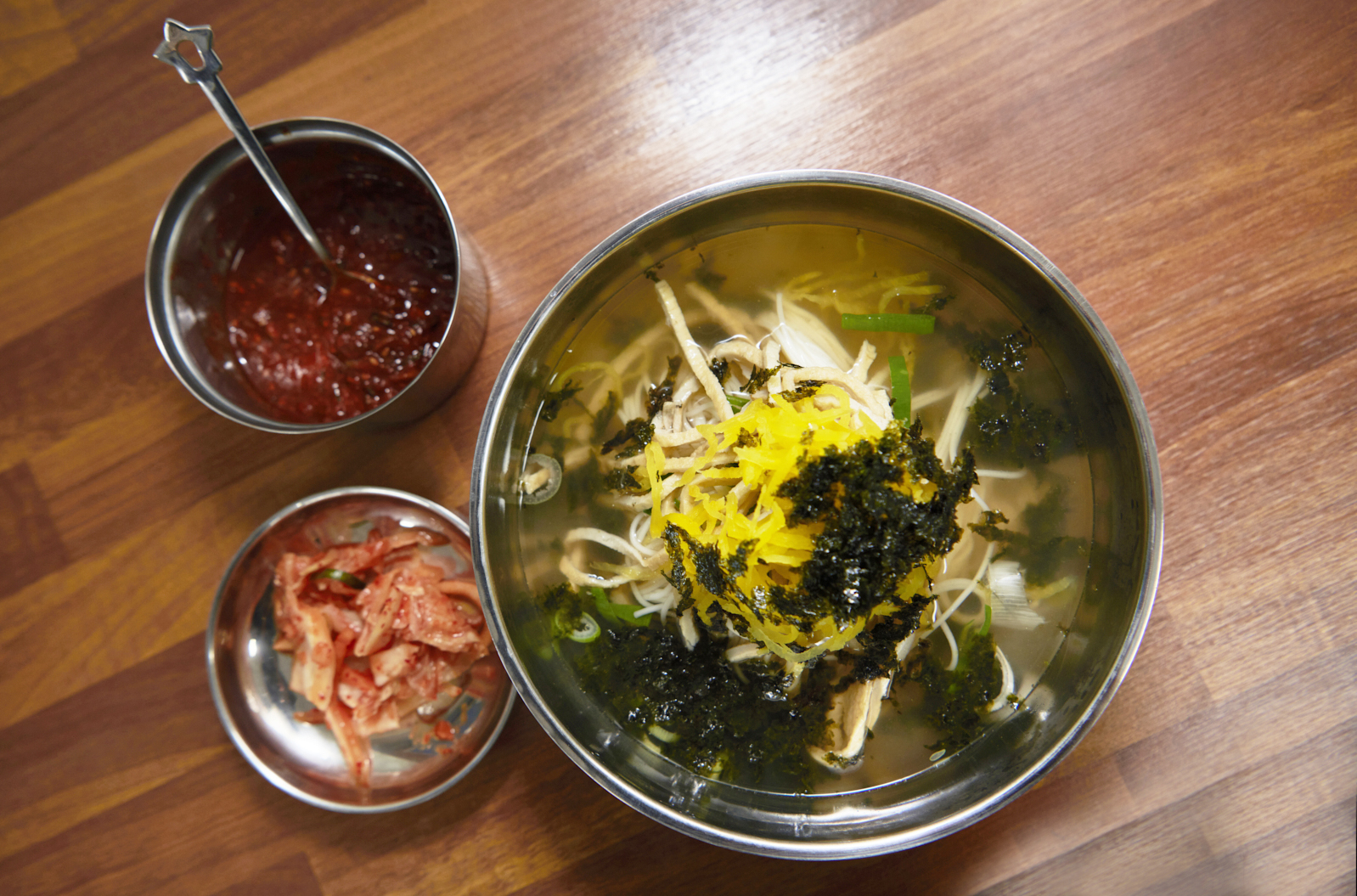
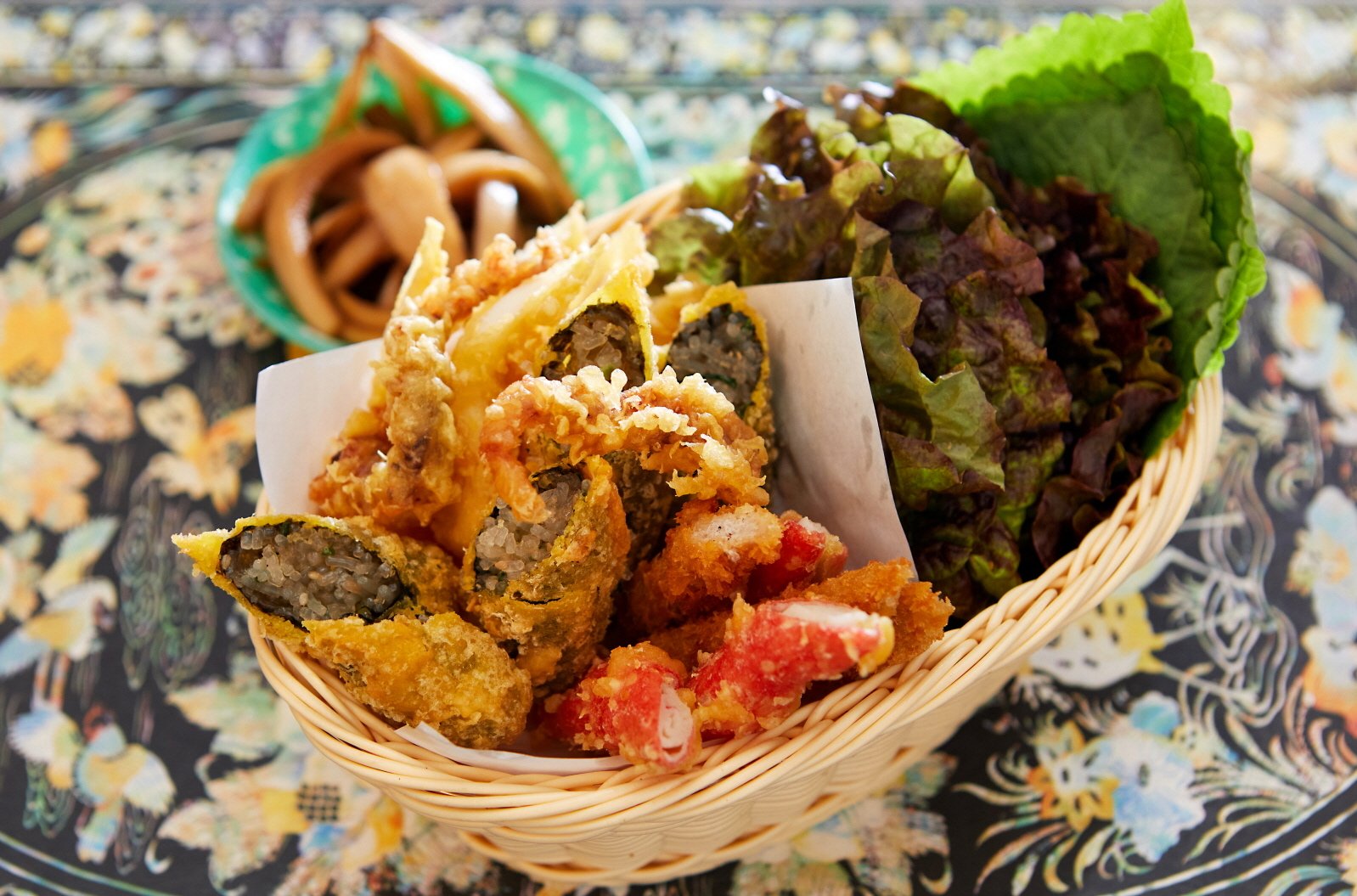
Yangdong Chicken vs. Sooil Chicken
Yangdong Chicken and Sooil Chicken are the two major brands at Tongdak Street in Yangdong Traditional Market. While Sooil chicken is crispier, Yangdong chicken is somewhat softer. Both have a huge number of fans. On those days when the Gwangju Kia Champions’ games are held, the waiting lines are even longer.
Yangdong One Dollar Noodle
A bowl of delicious banquet noodle is only 1,000 won (less than USD 1). Gwangju Seo-gu Office and Seo-gu Senior Club opened this good restaurant to revitalize the traditional market and to promote the consumption of Korean wheat. However, you have to pay 3,000 won if you don’t have receipt from Yangdong Traditional Market on the same day.
Fried Lettuce
Despite its name, this dish actually refers to crispy fried squid. You wrap the fried squid with lettuce and eat it with onion soy sauce. Such a combination of fried squid and fresh vegetable is a good source of nutrition including taurine and vitamins, which can help relieve you of travel fatigue.
【Places to Visit】
Yangnim History and Culture Village
A walk around the Yangnim-dong neighborhood transports visitors back in time 100 years. Buildings and monuments associated with the modernization process in the metropolitan city of Gwangju are frozen in time. A good place to start is Yangnim Church. Situated in front of the church is the Owen Memorial Hall constructed to honor Clement Owen, one of the first missionaries in Gwangju. From the Owen Memorial Hall, an uphill walk passes the residences of Western missionaries and it is today known as the “Jerusalem of Gwangju.” Gwangju Speer Girls’ Middle and High School, the cradle of women's education, is also in this area. The House of Lee Jang-woo is a classic example of the residences of the richest citizens of Gwangju during the early modern period. On the murals of the Penguin Village, J-hope of BTS can be found. All in all, this area is a space of history and culture that combines Western-style modern architecture and hanok. Those hoping to visit are encouraged to contact the Nam-gu District Office of Gwangju to make reservations for a guided tour of the Yangnim neighborhood.Address: Yangnim-dong Area, Nam-gu, Gwangju
Inquiries: +82-62-676-4486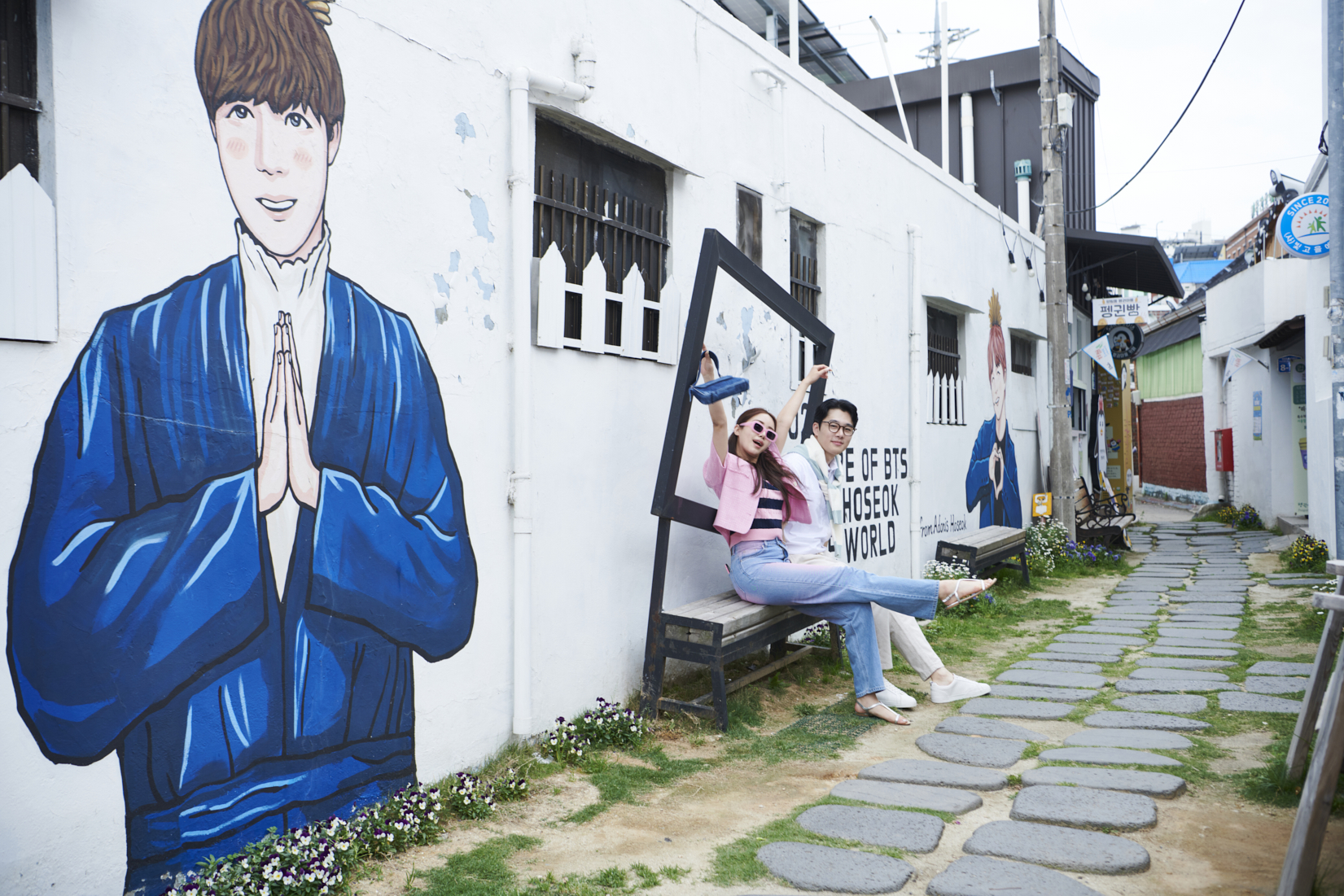
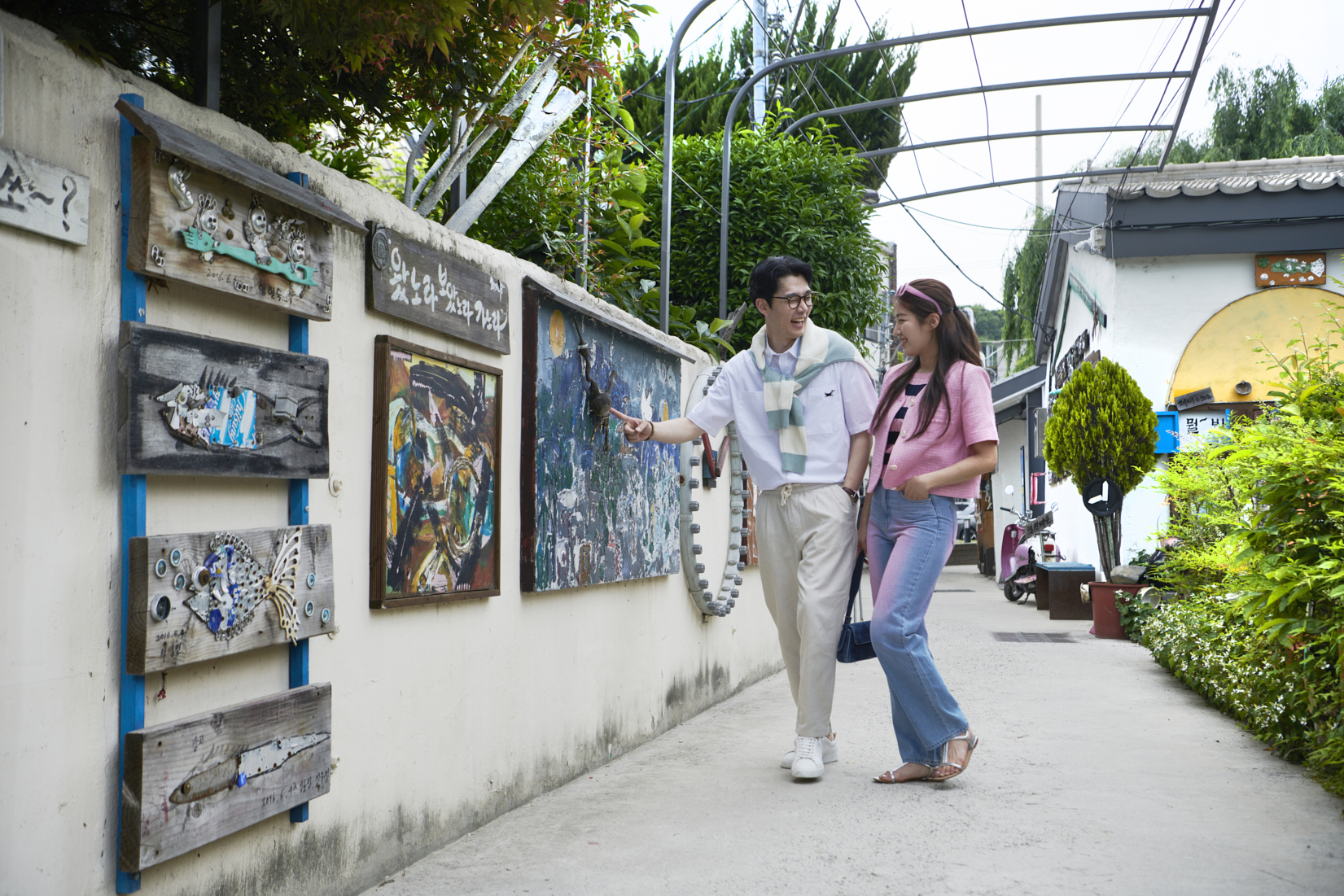
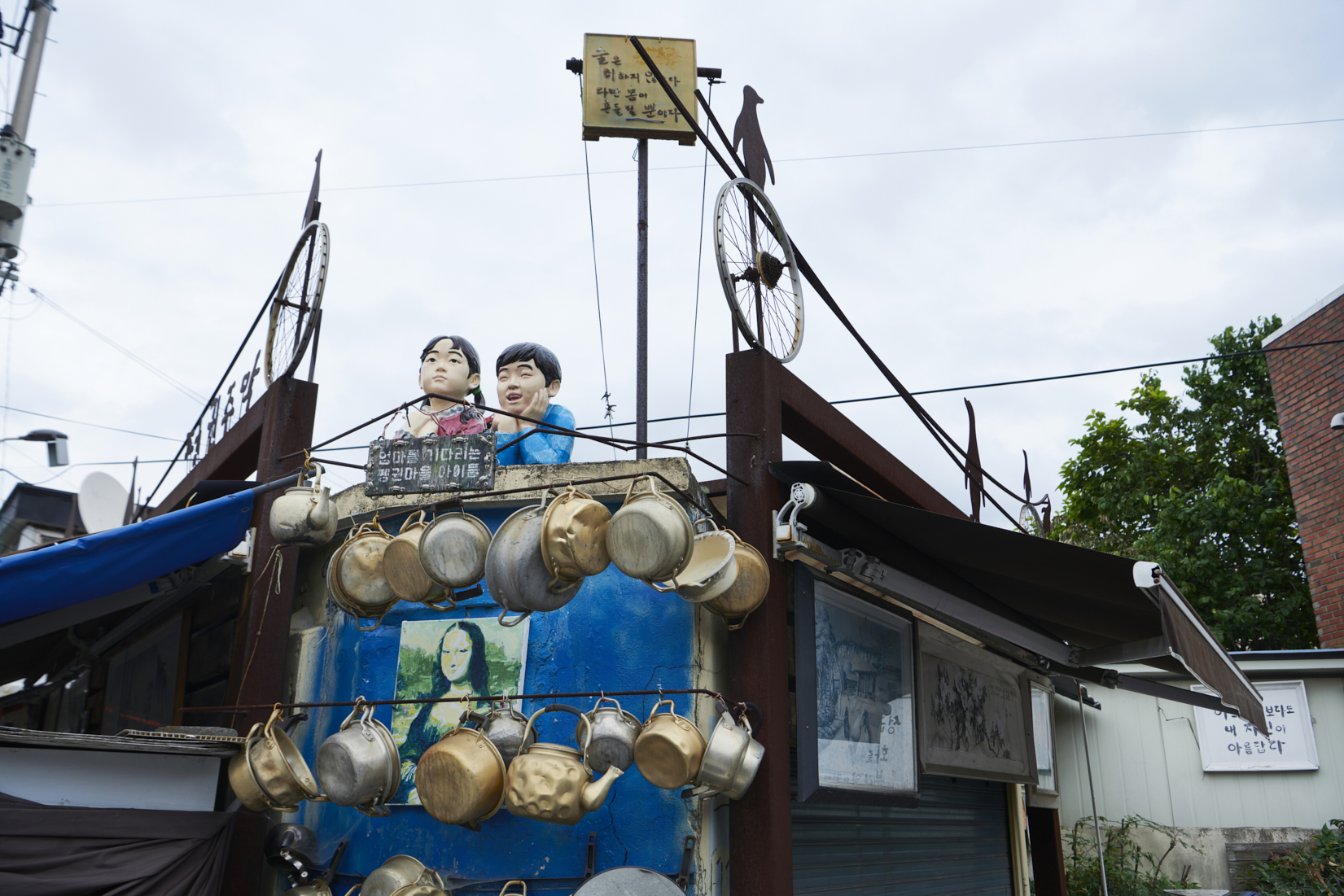
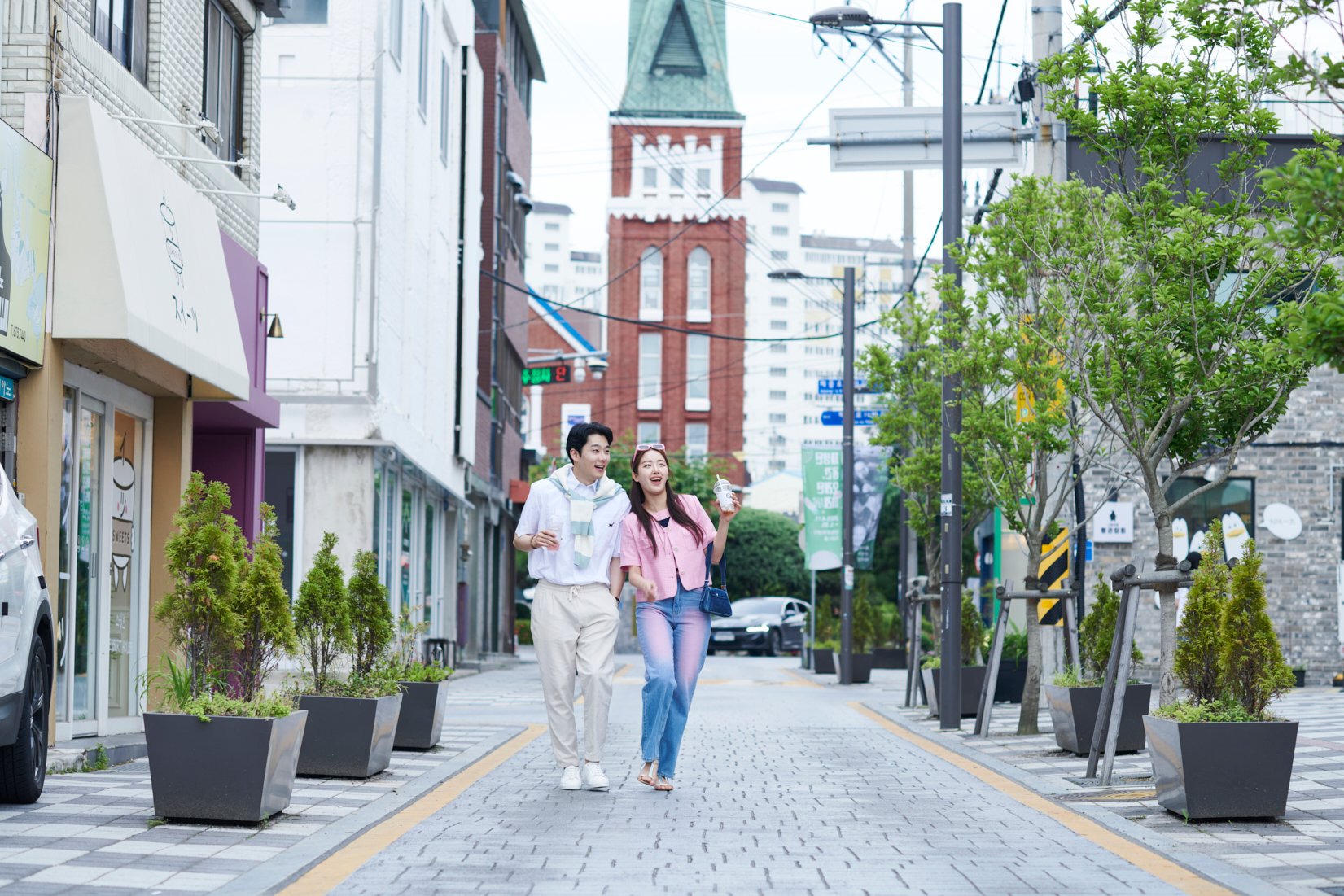
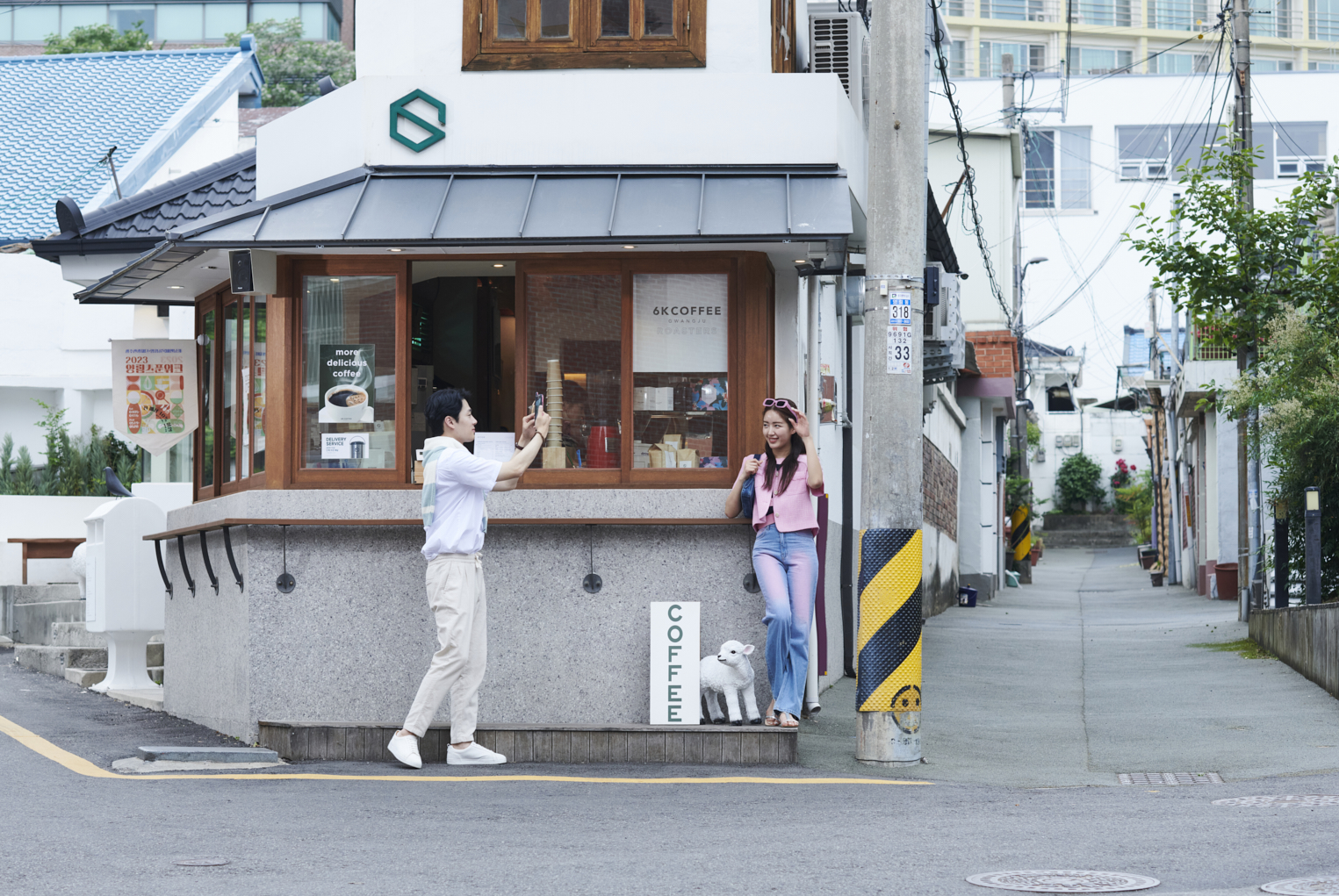
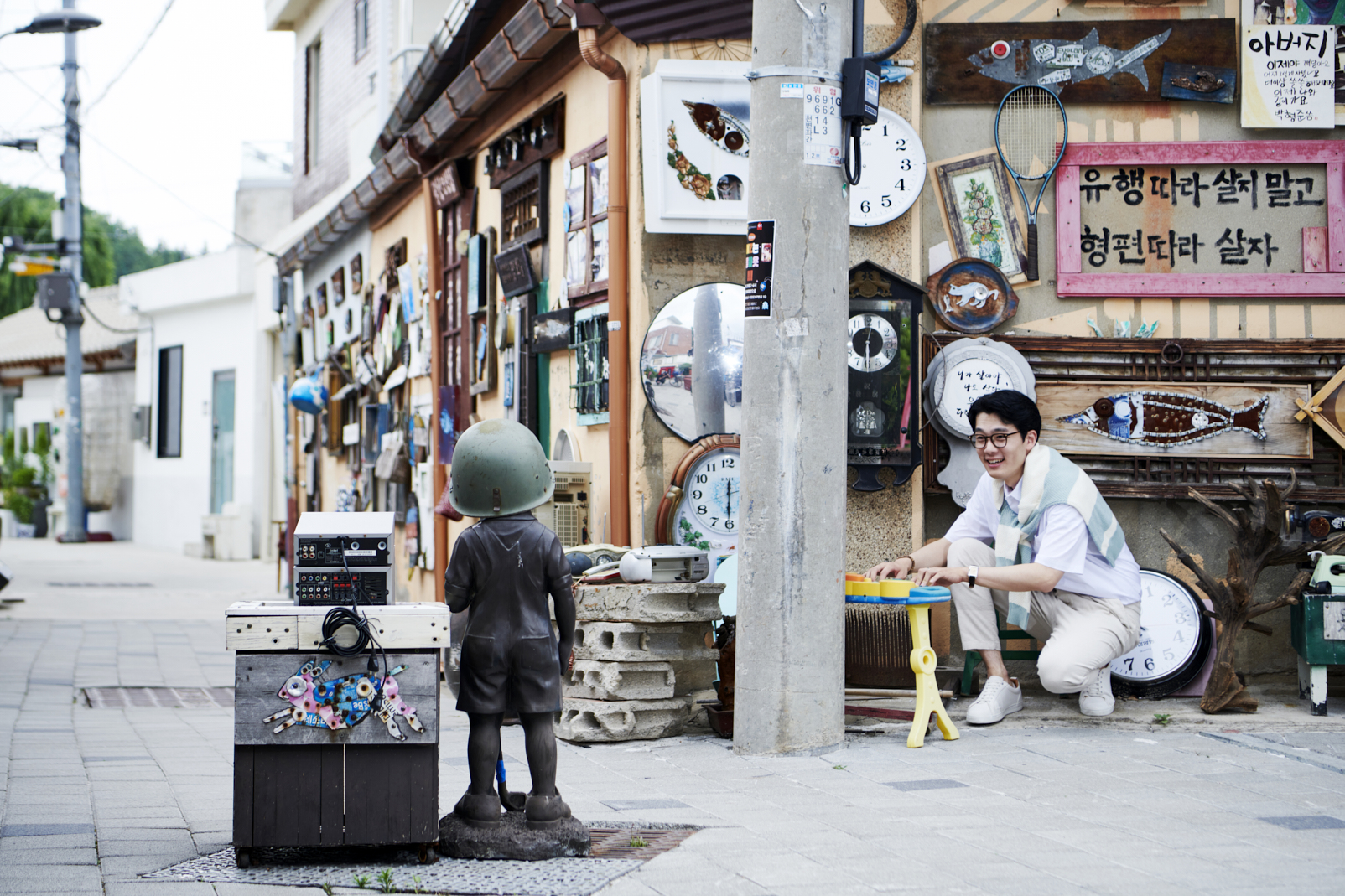
Asia Culture Center (ACC)
The Asia Culture Center is a world-class cultural complex specializing in exhibitions, performances and study, all focusing on Asian cultures. It was built underground behind the former Provincial Office Building. Once inside, you may not believe that you are underground as the space is very well-lit by taking advantage of the natural light. Architect, Gyu-seung Woo, designed the space under the theme of “forest of light.” The recommended route of tour: ACC Culture Exchange, ACC Children, ACC Archive & Research, ACC Theater, and others.
Address: 38, Munhwajeondang-ro, Dong-gu, Gwangju
Inquiries: +82-1899-5566
Operating hours
- Indoor facilities: 10:00-18:00
- Outdoor facilities: Summer 06:00-22:00 / Winter 07:00-22:00
Closed: Mondays and New Year’s Day (January 1st)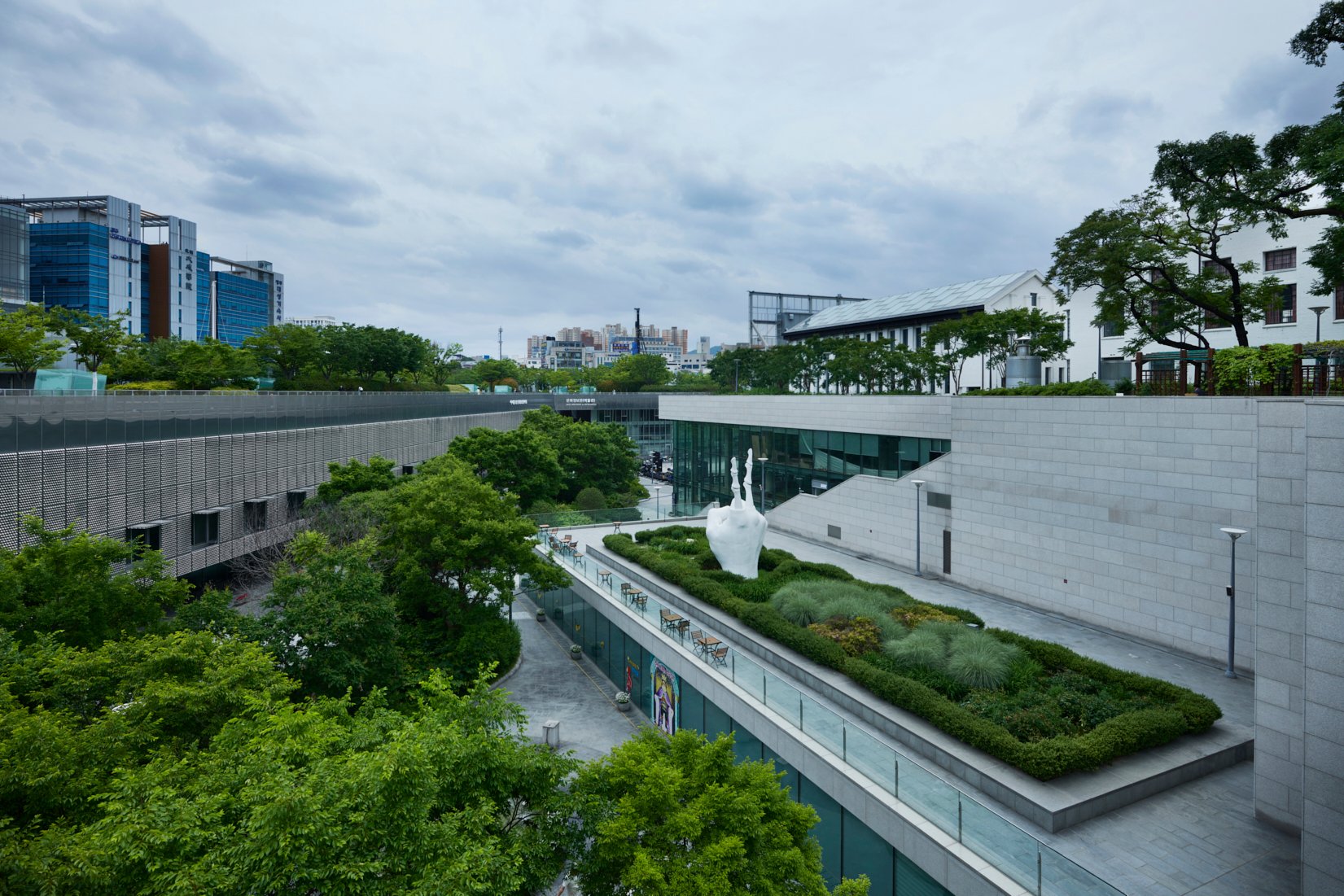
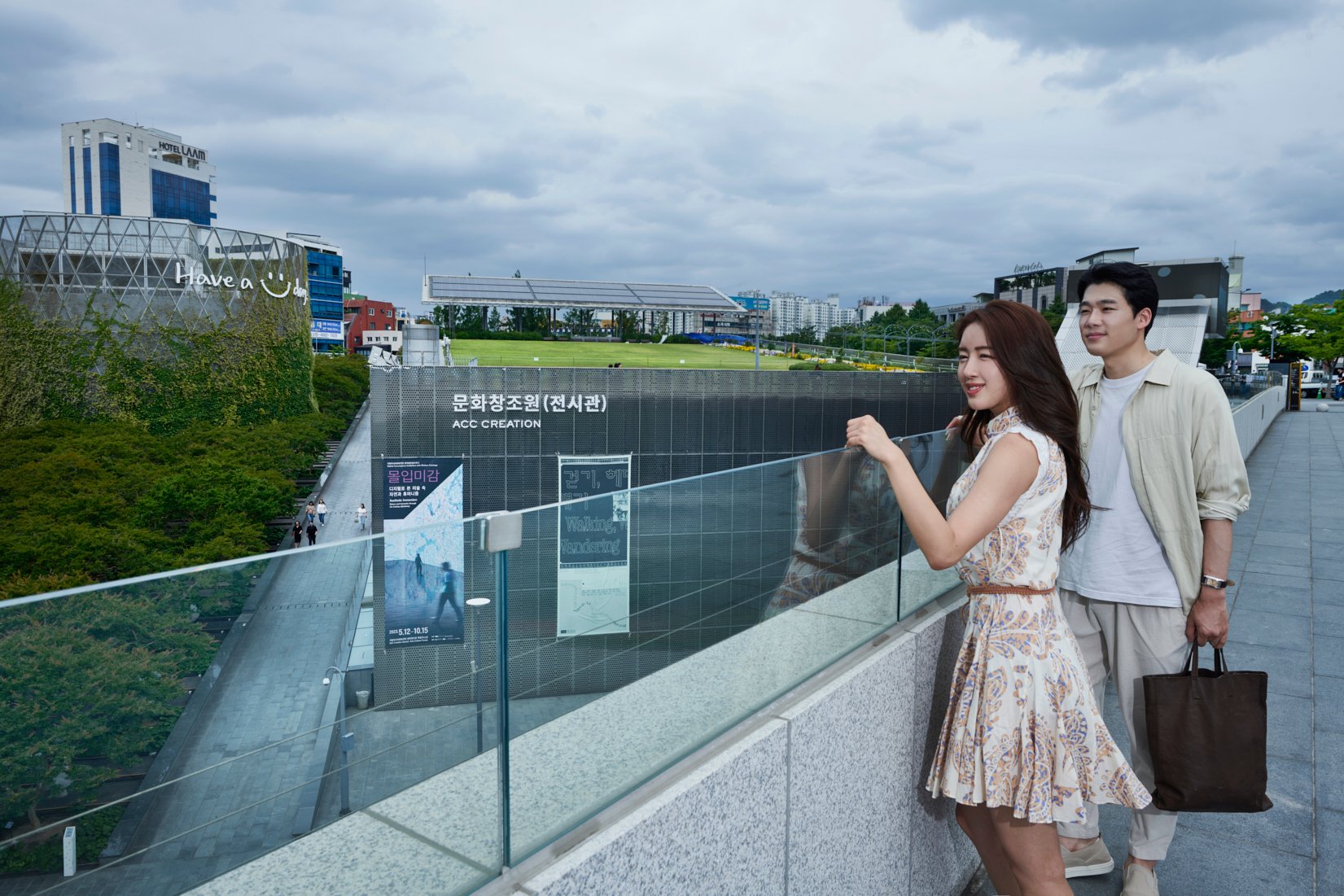
May 18th Memorial Park
Along with the May 18th Democracy Square, this memorial park is a place that remembers Gwangju's painful history. The May 18th Memorial Cultural Center shows the stories from the beginning of May 18,1980 till today. Go down to the basement behind the statue of the civic army in Daedong Square, and you will see the sculpture and memorial space. The hefty sound of the soldiers’ step overlapped with the statue of a desperate mother holding her child, reminds us of a moment of history that should not be forgotten.
Address: 152, Naebang-ro, Seo-gu, Gwangju
Inquiries: +82-62-376-5197
Operating hours: Summer 09:00-18:00 / Winter 09:00-17:00 (outdoor facilities open all year round)
Closed: N/A (open all year round)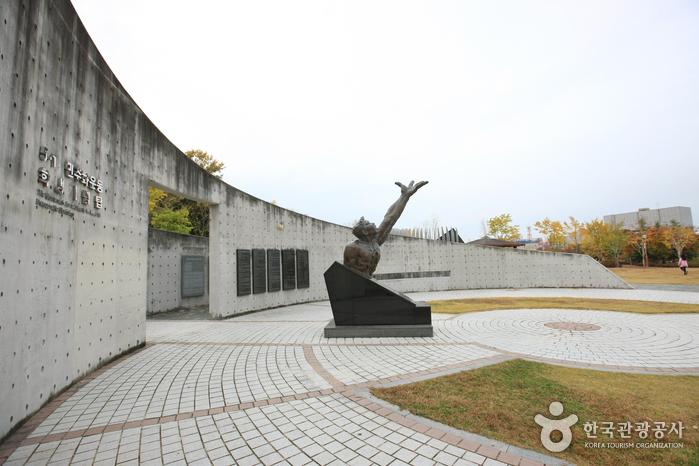
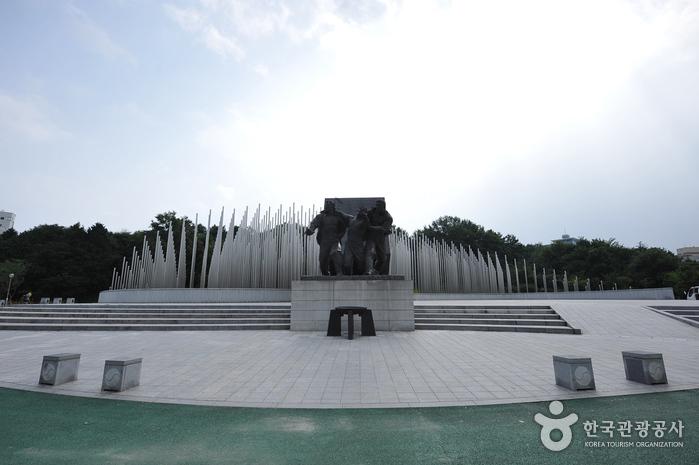
ⓒKorea Tourism Contents Lab





